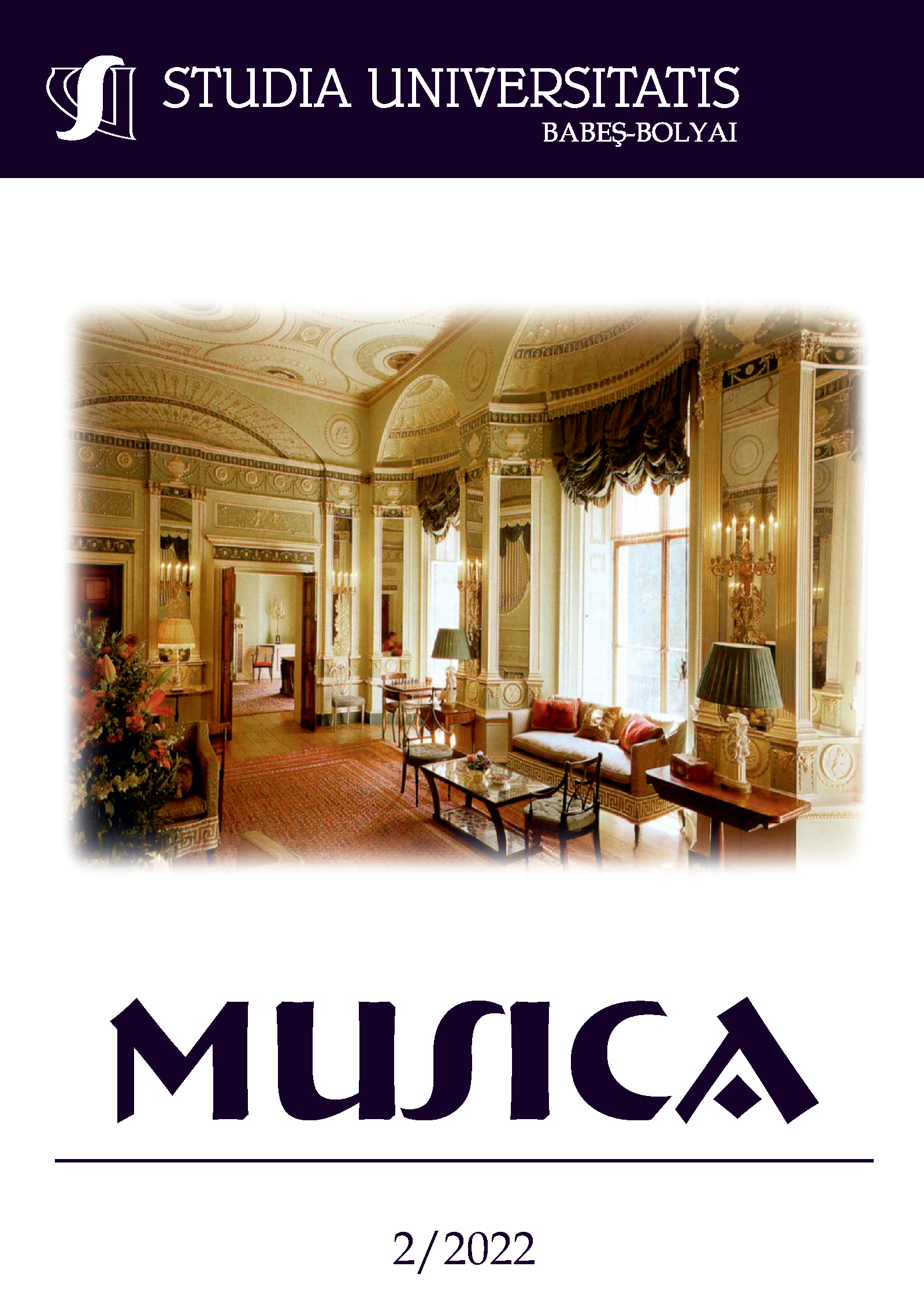RATIONAL AND EMOTIONAL FACTORS OF MUSIC AND PERFORMANCE AESTHETICS
DOI:
https://doi.org/10.24193/subbmusica.2022.2.13Keywords:
performance process, psychology, aesthetics, motivation, rational and emotional factors.Abstract
The leading task of the research is the definition and analysis of psychological factors, which depend not only on the formation, but also on the independent improvement of already acquired features of musical skills, including those that allow a performing musician to influence his/her own emotional sphere, keep it under constant control, adapt to the innate temperament and skills already formed in the process of professional training and performance practice. It is the analysis of these factors that makes it possible to recommend ways and methods of creating an individual style of a musician’s concert activities, as well as the constant self-improvement of his/her skills, which is necessary for a performing musician. The emotional and rational assimilation processes presented for analysis as initial factors of creative activity form the aesthetic relationship of the individual to reality directly through the subject of active communication with art (musical and instrumental, in particular).References
Adamyan, Arshak. Questions of aesthetics and theory of art. Moscow, Art, 1978, 301 p.
Davydov, Mykola. Theoretical foundations of formation of performance skills of an accordionist. Kyiv, Musical Ukraine, 2004, 240 p.
Kopina, Olga. Study of the emotional regulation of mental activity under conditions of various motivations. Ph.D. thesis. Specialty 19.00.01 (General psychology, personality psychology, history of psychology), Moscow, Art, 1978, 184 p.
Laszlo, Ervin. Aesthetics of live musical performance. The British Journal of Aesthetics, Volume 7, Issue 3, July 1967, p. 261-273
Liang, Jing. Study on Aesthetic Characteristics of Musical Performance. 2018 4th International Conference on Economics, Management and Humanities Science (ECOMHS 2018): 387-390. Web. 14 Aug. 2019.<https://webofproceedings.org/proceedings_series/ECOM/ECOMHS%202018/ECOMHS97087.pdf>
Liashenko, Ivan. Music in the system of aesthetic education. Kyiv, Znannia, 1975, 48 p.
Medushevskiy, Vyacheslav. On the regularities and means of the artistic influence of music. Moscow, Muzyka, 1976, 254 p.
Moskalenko, Viktor. The creative aspect of musical interpretation (to the problem of analysis). Kyiv, Muzinform, 1994, 157 p.
Pyaskovskiy, Igor. The logic of musical thinking. Kyiv, Musical Ukraine, 1986, 180 p.
Samitov, Viktor. Theoretical foundations of professional thinking of a performing musician as a criterion of professional skill. Lutsk, Volyn regional printing house, 2011, 272 p.
Samoilenko, Oleksandra. Informational and cultural aspects of the problem of memory in music. Musical art and culture. Scientific Bulletin of the Odesa State Academy of Music named after A. Nezhdanova: Vol. 6, Odesa, Printing house, 2005, p. 24-33.
Downloads
Published
How to Cite
Issue
Section
License
Copyright (c) 2022 Studia Universitatis Babeș-Bolyai Musica

This work is licensed under a Creative Commons Attribution-NonCommercial-NoDerivatives 4.0 International License.






